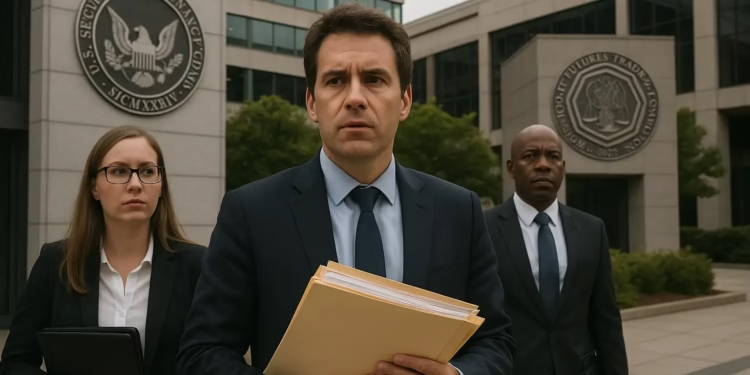The Securities and Exchange Commission (SEC) and the Commodity Futures Trading Commission (CFTC) have reaffirmed their commitment to align oversight of digital assets, issuing a joint statement on September 5 that emphasized the need for coordinated rules. The move is seen as one of the most significant steps yet in advancing SEC and CFTC crypto regulation.
“It is a new day at the SEC and the CFTC, and today we begin a long-awaited journey to provide markets the clarity they deserve,” said SEC Chairman Paul S. Atkins and CFTC Acting Chairman Caroline D. Pham in the joint release. “By working in lockstep, our two agencies can harness our nation’s unique regulatory structure into a source of strength for market participants, investors and all Americans.”
The announcement comes amid rapid innovation in decentralized finance and growing pressure on U.S. regulators to prevent more companies from moving operations offshore. The agencies acknowledged that their responsibilities have “never been more intertwined” and said harmonization is now a priority for SEC and CFTC crypto regulation.
Joint roundtable to tackle innovation and oversight gaps
As part of their effort, the SEC and CFTC will hold a public roundtable on September 29 to gather input from market participants, developers, and investors. The session will explore how to restore onchain innovation to U.S. markets after years of regulatory fragmentation pushed projects abroad.
“The United States has long been the home of financial innovation, but recently, novel products have been driven overseas by fragmented oversight and legal uncertainty,” the statement noted. “The SEC and the CFTC should encourage the reversal of this trend.”
Analysts say the upcoming roundtable could mark the most direct engagement yet between federal regulators and the decentralized finance community. By inviting dialogue, the agencies signal openness to a regulatory approach that balances compliance with flexibility. This step is being viewed as a defining moment in shaping the future of SEC and CFTC crypto regulation.
Considering exemptions for DeFi and market innovation
One of the most striking elements of the statement was the willingness of both agencies to consider “innovation exemptions” for decentralized finance (DeFi). Such exemptions could permit peer-to-peer trading and other advanced operations within defined guardrails, creating a controlled environment for experimentation.
The regulators also highlighted prior efforts to revisit perpetual contracts and bring these instruments back onshore. In addition, they acknowledged that onchain finance could offer distinct advantages over traditional structures, including the possibility of 24/7 trading.
“Markets are evolving quickly, and regulators cannot afford to lag behind,” said Kristin Johnson, Commissioner at the CFTC, in a panel appearance earlier this year. “Exploring exemptions does not mean deregulation; it means building frameworks that can support innovation responsibly.”
This openness represents a shift from the more enforcement-heavy stance often associated with the SEC, suggesting that harmonization under SEC and CFTC crypto regulation could involve a blend of oversight and flexibility.
Implications for U.S. leadership in digital finance
The joint initiative reflects growing concern that the U.S. risks losing its edge in financial innovation without a clear regulatory roadmap. Policymakers fear that without harmonized rules, capital and talent will continue to flow to friendlier jurisdictions in Europe and Asia.
Industry stakeholders welcomed the collaboration. “The lack of consistency between the SEC and the CFTC has created significant uncertainty,” said Sheila Warren, CEO of the Crypto Council for Innovation, in a recent interview. “A coordinated framework for SEC and CFTC crypto regulation is essential to ensuring that innovation happens in the United States, not abroad.”
For policy makers, the announcement underscores the balancing act ahead: protecting investors while fostering an environment where new technologies can thrive. How the agencies structure exemptions, define digital asset classifications, and manage cross-border coordination will be decisive in shaping market confidence.
As the September 29 roundtable approaches, stakeholders across government, industry, and civil society will be watching closely. The session could set the tone for the next phase of SEC and CFTC crypto regulation, determining whether the U.S. can reassert leadership in digital markets or continue to cede ground to global competitors.











